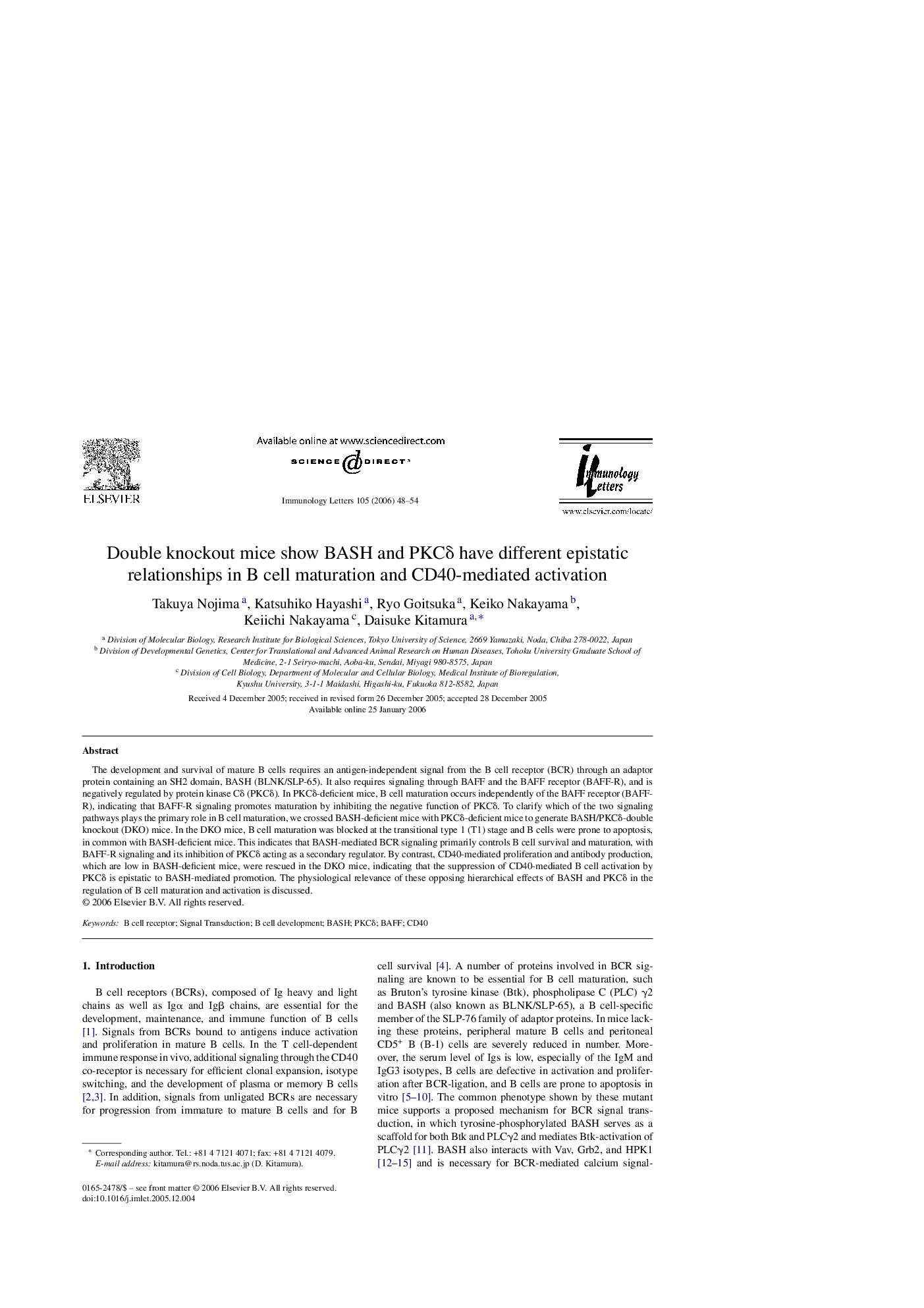| Article ID | Journal | Published Year | Pages | File Type |
|---|---|---|---|---|
| 3356501 | Immunology Letters | 2006 | 7 Pages |
The development and survival of mature B cells requires an antigen-independent signal from the B cell receptor (BCR) through an adaptor protein containing an SH2 domain, BASH (BLNK/SLP-65). It also requires signaling through BAFF and the BAFF receptor (BAFF-R), and is negatively regulated by protein kinase Cδ (PKCδ). In PKCδ-deficient mice, B cell maturation occurs independently of the BAFF receptor (BAFF-R), indicating that BAFF-R signaling promotes maturation by inhibiting the negative function of PKCδ. To clarify which of the two signaling pathways plays the primary role in B cell maturation, we crossed BASH-deficient mice with PKCδ-deficient mice to generate BASH/PKCδ-double knockout (DKO) mice. In the DKO mice, B cell maturation was blocked at the transitional type 1 (T1) stage and B cells were prone to apoptosis, in common with BASH-deficient mice. This indicates that BASH-mediated BCR signaling primarily controls B cell survival and maturation, with BAFF-R signaling and its inhibition of PKCδ acting as a secondary regulator. By contrast, CD40-mediated proliferation and antibody production, which are low in BASH-deficient mice, were rescued in the DKO mice, indicating that the suppression of CD40-mediated B cell activation by PKCδ is epistatic to BASH-mediated promotion. The physiological relevance of these opposing hierarchical effects of BASH and PKCδ in the regulation of B cell maturation and activation is discussed.
